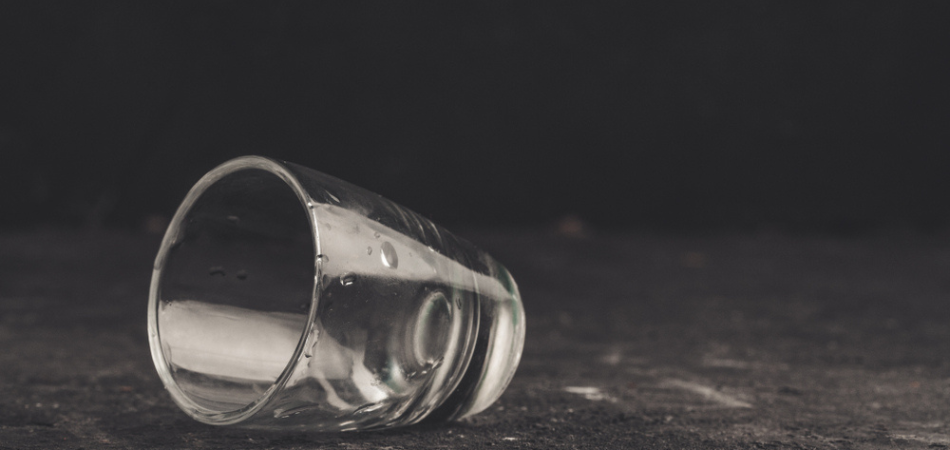
Written by:

Medically Reviewed by:
Last Updated:
December 19th, 2024
Addiction and depression
Depression and addiction are two challenging battles that often go hand in hand, intertwining in a complex and distressing manner. It’s a delicate web that many people find themselves caught in, where one struggle fuels the other, creating a vicious cycle that can feel impossible to break.
Moreover, research has shown a significant correlation between depression and addiction, indicating that these conditions frequently co-exist. Individuals struggling with depression are at an increased risk of developing addiction and vice versa.
What is depression?
Depression is a mental health disorder characterised by persistent feelings of sadness, hopelessness, and a loss of interest or pleasure in activities. It goes beyond typical fluctuations in mood and can significantly impact a person’s daily functioning, relationships, and overall well being.
Common symptoms of depression include:
- Persistent sadness
- Loss of interest in activities once enjoyed
- Fatigue or low energy levels
- Feelings of worthlessness or excessive guilt
- Difficulty concentrating and making decisions
- Changes in appetite and weight
- Sleep disturbances, such as insomnia or excessive sleep
- Recurrent thoughts of death or suicidal ideation
Addiction can worsen depressive symptoms, while depression can increase vulnerability to addiction, resulting in a self-perpetuating cycle that is challenging to break without professional help.
Are people with depression more likely to be addicted to a substance?
People with depression are more vulnerable to developing substance abuse issues, and individuals with addiction are more likely to experience symptoms of depression, showing how much they co-exist with one another. Clients who experience both addiction and depression are commonly referred to as dual diagnosis clients and need both conditions addressed simultaneously.
Studies have consistently shown a high rate of comorbidity between drug addiction and depression, with 25% of individuals, in the UK, with alcohol dependence also taking medication for mental health conditions, predominantly depression and anxiety. Additionally, habitual cannabis users face a significantly heightened risk of developing severe mental health disorders, such as depression.
What similarities link addiction and depression?
To understand how addiction and depression are intertwined, it is important to look into key factors that connect them.
- Self-medicating: People with depression turn to substances or addictive behaviours to self-medicate and alleviate their emotional pain. They may use drugs or alcohol to temporarily escape or numb their feelings resulting in addiction.
- Biological factors: Both depression and addiction involve dysregulation of neurochemical mechanisms, such as dopamine and serotonin, which are vital for mood regulation.
- Impact on mental and physical health: Depression and addiction can negatively impact a person’s health, leading to a decline in overall wellbeing, strained relationships and decreased quality of life.
Both conditions are considered high risk for any individual, but having to battle the vicious self-perpetuating cycle of addiction and depression simultaneously can be extremely challenging and is important to confront with expert help.
How does Oasis Bradford treat depression and addiction?
At Oasis Bradford, we undertake a full physical and mental health assessment when you join us as an inpatient. If depression has been previously diagnosed, we will incorporate that into your rehab programme; however, it is crucial that your depression has been stabilised by your doctor before beginning your addiction rehabilitation process.
During your comprehensive rehab treatment programme at Oasis Bradford, you will have access to a safe and supportive environment made possible by our skilled team, who understands the unique challenges of dual diagnosis, free from the daily burdens of life, allowing you to focus entirely on your recovery.
We offer a range of therapies designed to address both addiction and depression, including:
- Dialectical Behaviour Therapy (DBT): DBT focuses on mindfulness, stress management, and emotional regulation to reduce symptoms of depression and decrease the need for substance abuse.
- Detox: Detoxing gives your body a chance to rid itself of the harmful substances in your body as medical professionals oversee the process and ensure your safety.
- Holistic Treatments: Our treatment programme includes holistic activities such as yoga, meditation, art therapy, and music therapy. These activities promote a sense of well-being and help in developing a healthy lifestyle.
- Group Therapy: Group therapy provides a secure and nurturing environment where individuals can openly share their stories and gain insights from others who have faced similar struggles.
- Family Therapy: Family therapy allows you to work on your familial relationships and provides a valuable support network during times of emotional hardship. It teaches effective communication, setting healthy boundaries, and repairing any damage caused by addictive behaviours.
At Oasis Bradford, our commitment is to provide compassionate and effective care for individuals struggling with depression and addiction. Throughout your rehab journey, our experienced professionals will be there to support you at every step, offering encouragement and guidance along the way.
The next step
Oasis Bradford is here to help those who suffer from depression overcome their addiction. Our rehab programme is designed to help clients manage their depression as they take the brave step to overcoming their addiction.
If you are ready to kick-start your treatment and step into the world of recovery, then get in touch with us today.





